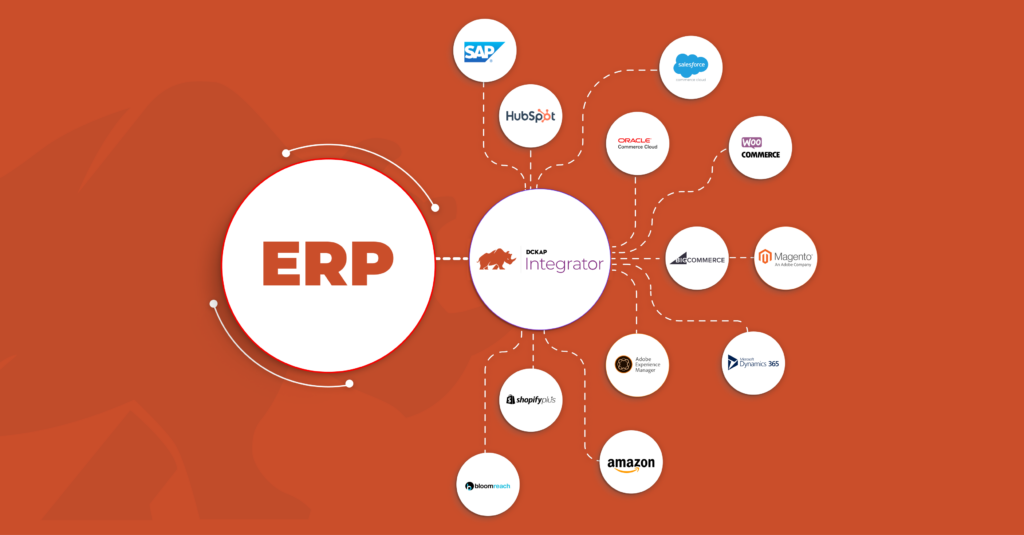ERP – Systems Integration is when you integrate your internal systems with your ERP. It can be CRM, ecommerce, inventory, and many more. The amount of revenue that distributors lose without ERP integration can vary depending on the size and complexity of the business operations. However, in general, without an integrated ERP system, distributors may experience significant revenue losses, along with ERP integration challenges, due to inefficiencies, errors, and missed opportunities.
Already, 73% of IT leaders say that automation has helped their teams save at least 11% and up to 30% of the time previously spent on manual processes.
And for a good reason: another study found that 83% of employees spoken to say that automation makes employees more efficient and productive, with over 45% believing that it would also increase revenue.
Contents
System Integration Using Middleware
There are several means of connecting your business applications, including using custom integrations. One of the more convenient options includes middleware or Integration Software as a Solution (IPaaS) tools. Middleware is a third-party product that allows the flow of information between two or more applications.
The right middleware can save a lot of time, effort, and costs that are otherwise associated with manual data management, human error, lack of transparency, and more. With workflows, automated data sync and real-time information, internal teams and customers can have improved experiences with a business with integration. We’ve listed some of the top integration tools here, but if you’re a distributor, we explain more about our tool designed specifically for the industry.
Challenges Without Systems Integration
Without an integrated ERP system, distributors may face the following challenges:
Inventory Management
Inventory management is one of the most critical aspects of a distributor’s business. Without proper inventory management, distributors may experience excess stock or stock shortages. Excess stock can lead to additional costs such as storage fees, wasted resources, or lost sales.
On the other hand, stock shortages can lead to lost sales, dissatisfied customers, and damage to the distributor’s reputation.
An integrated ERP system can help distributors manage their inventory more efficiently. With real-time data, distributors can monitor inventory levels, track sales trends, and make informed decisions about their inventory. This can help them reduce excess stock, minimize stock shortages, and ultimately increase profitability.
Order Processing
Order processing is another critical aspect of a distributor’s business. Without an integrated ERP system, order processing can become more time-consuming and error-prone. This can lead to delays in fulfilling customer orders, dissatisfied customers, and lost revenue.
With an integrated ERP system, distributors can automate order processing, reducing errors and speeding up order fulfillment. This can help distributors improve customer satisfaction, increase sales, and improve their bottom line.
Supply Chain Management
Supply chain management is a complex and challenging aspect of a distributor’s business. Without an integrated ERP system, distributors may not have real-time visibility into their supply chain, leading to delays and additional costs. For example, without Systms integration, distributors may not be able to track the status of their orders, manage their inventory levels effectively, or monitor their suppliers’ performance.
With ERP Supply chain system integration, distributors can have real-time visibility into their supply chain, enabling them to make informed decisions and respond quickly to changing market conditions. This can help distributors improve their supply chain efficiency, reduce costs, and ultimately increase profitability.
Financial Management
Without an integrated ERP system, financial management can become more challenging. Distributors may struggle to track expenses and revenues accurately, leading to financial losses. For example, without an ERP system, distributors may not be able to track the costs of goods sold accurately, leading to incorrect profit margins.
An integrated ERP system can help distributors manage their finances more efficiently. With real-time financial data, distributors can track their expenses and revenues accurately, enabling them to make informed decisions and improve their profitability.
Manual and error-prone processes
Without an integrated system, distributors may rely on manual processes and disparate systems to manage their business operations, which can be time-consuming and prone to errors. This can lead to delays in order processing and fulfillment, increased order errors, and dissatisfied customers.
Lack of real-time visibility
Without an integrated ERP system, distributors may lack real-time visibility into inventory levels, order status, and other critical business data. This can lead to stockouts, overstocking, and missed sales opportunities.
Limited automation
Without an integrated system, distributors may be limited in their ability to automate key processes, such as order processing, invoicing, and payments. This can result in increased costs and slower turnaround times.
Read Also: The Complete Guide to ERP Integration
An Integrator Built for Distributors
DCKAP has been assisting distributors with digital transformation for over 17 years. While speaking with distributors, we found that they spend an average of 4 hours of their time and $60 per hour. It may appear to be a minor difference, but when calculated annually, it amounts to approximately $86,400 and 1440 hours of time. Assuming the company generates $1 million in revenue, this amounts to approximately 8.6% of its revenue.

By automating the data transfer time and amount spent in the process have drastically reduced, it can cost somewhere around $12- 30K based on the customer requirements, where we can save more than what we do manually.
Break down barriers – With ERP integration, you can achieve limitless profitability.
- Create a centralized, omnichannel data environment.
- Access critical files and documents whenever and wherever you want.
- From a single dashboard, you can view everything from organizational-wide analytics to transaction-specific insights.
- Process automation can help you save time and increase productivity.
- Improve cross-channel collaboration by managing team members, sales funnels, fulfillment, and other aspects.
Finally, without an integrated ERP system, financial management can become more challenging. Distributors may struggle to track expenses and revenues accurately, leading to financial losses. For example, without an integrated ERP system, distributors may not be able to track their costs of goods sold accurately, leading to incorrect profit margins.
An integrated ERP system can help distributors manage their finances more efficiently. With real-time financial data, distributors can track their expenses and revenues accurately, enabling them to make informed decisions and improve their profitability.
If you’d like to start simplifying your business today, you can try DCKAP Integrator for free or let us know if you’d like a personalized demo with an integration expert.




